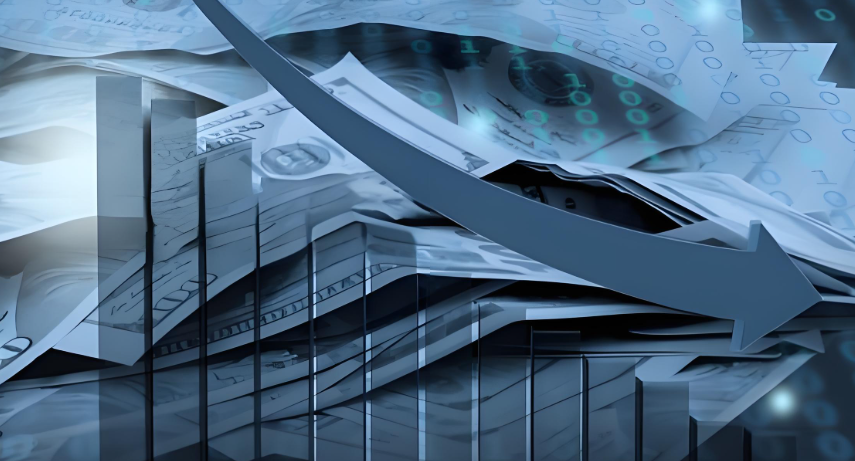Declining Expectations for Fed Rate Cuts
Advertisements
The recent movements within the U.S. Federal Reserve represent a significant turn in monetary policy, as officials start to redefine their approach to managing expectations. Notably, on November 15, 2023, Tom Barkin, the president of the Richmond Fed, shared insights on the trajectory of inflation during an interview. His remarks indicated that he anticipates a continued decline in inflation through 2025, while hinting at the possibility of the Fed moderating its pace of interest rate cuts. This stance reflects growing concerns among investors regarding the imposition of substantial tariffs, which could potentially reignite inflationary pressures.
Barkin articulated that the true impact of such tariffs remains uncertain at this stage. Questions surrounding the magnitude and nature of these tariffs, as well as potential retaliatory measures from trading partners, complicate the analysis of their inflationary effects. He emphasized that if the cost of imported goods rises due to tariffs, these expenses are likely to be passed on to consumers to some extent. The interconnectedness of global trade means that changes in tariff policies would not only affect domestic prices but could create ripples throughout the economy.
The ongoing shifts in expectations were further evident in the financial markets. Traders increased their bets on the likelihood that the Federal Reserve would not alter interest rates during its upcoming December meeting. This speculation surged from approximately 14% to 42% within a month, as the prospect of an unchanged policy gained traction. Additionally, expectations for easing in 2025 have been scaled back significantly, hinting at a more conservative approach to fiscal adjustments in the near future.

As a voting member of the Federal Open Market Committee (FOMC) for 2024, Barkin's views carry substantial weight in the decision-making process surrounding U.S. monetary policy. His recognition of consumer behaviors indicates a complex picture of the current economic landscape. He noted that consumers, frustrated by high prices, are making strategic choices—shopping for bargains and opting for promotions—as a response to the prevailing inflationary pressures. This shift in consumer habits reflects a broader trend of adaptive behavior in an unpredictable economic environment.
In regard to tariff discussions, Barkin reiterated that it is premature to predict the long-term effects of the United States' trade policies. The ambiguity surrounding tariffs complicates the ability to measure their direct influence on inflation. Nonetheless, he expressed a clear understanding that rising costs for imports cannot be absorbed indefinitely and will likely filter through to consumers, accentuating the interconnectedness of global supply chains and domestic pricing mechanisms.
Contrarily, Susan Collins, president of the Boston Fed, weighed in on the urgency of cutting interest rates. She indicated that while she does not see immediate pressure for reduction, she has not ruled out the potential for a rate cut at the upcoming December 17-18 meeting. Collins stated, "I certainly would not rule out December as a possibility. However, we are not adhering to a pre-set path, so we will carefully examine the data to assess what is reasonable at that time." This cautious yet open approach underscores the nuanced deliberations taking place within the Fed as they adapt to changing economic indicators.
Despite several Fed officials expressing hesitance about an imminent rate cut in December, they alluded to a possible strategy of slowing the pace of cuts rather than completely ceasing them. This sentiment aligns with broader economic conditions, where positive growth data, such as strong retail sales, complicates the narrative surrounding inflation. The recent data indicated better-than-expected performance in retail, prompting traders to reassess their projections regarding interest rate cuts.
Indicators of economic strength have contradicted inflation fears. In recent reports, the query of whether inflation remains a monster lurking at the edges of economic stability was highlighted, particularly in light of strong retail sales and rising import prices. After the data release, traders recalibrated their expectations for a potential rate cut in December from about 70% to around 60%. This shift illustrates the dynamic interplay between economic indicators and Federal Reserve policy decisions.
The Fed's narrative has emphasized a balanced approach to managing interest rates against the backdrop of economic growth and inflation pressures. While the Federal Reserve operates under the presumption that inflation will stabilize, the speed at which it can adapt its current interest rate stance remains a contested topic. The benchmark interest rate currently resides between 4.5% and 4.75%, levels deemed restrictive enough to impact spending and investment decisions.
However, as the political landscape in the U.S. undergoes transformation, forecasted tax reductions for the upcoming year no longer appear as certain. This environment of uncertainty leads Wall Street to reassess anticipated inflationary pressures and adjust their expectations accordingly. Investors are acutely aware of how the broader economic context influences the Fed’s policy-making process, prompting a recalibration of their strategies related to interest rate bets.
In summation, the Federal Reserve's approach is morphing amidst intricate economic dynamics. The interplay between rising tariffs, consumer behavior, and overall economic data creates a complex web for decision-makers. As they navigate these shifting sands, maintaining momentum while balancing inflationary risks and consumer confidence remains a delicate task. The upcoming December meeting will serve as a vital juncture for the Federal Reserve as it charts its course in the face of evolving fiscal realities and economic indicators.
Post Comment